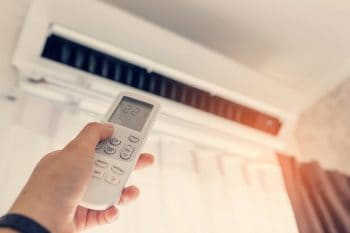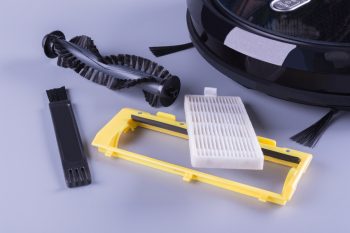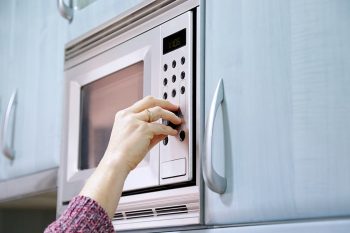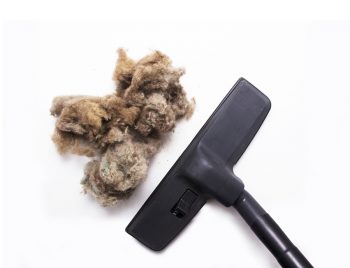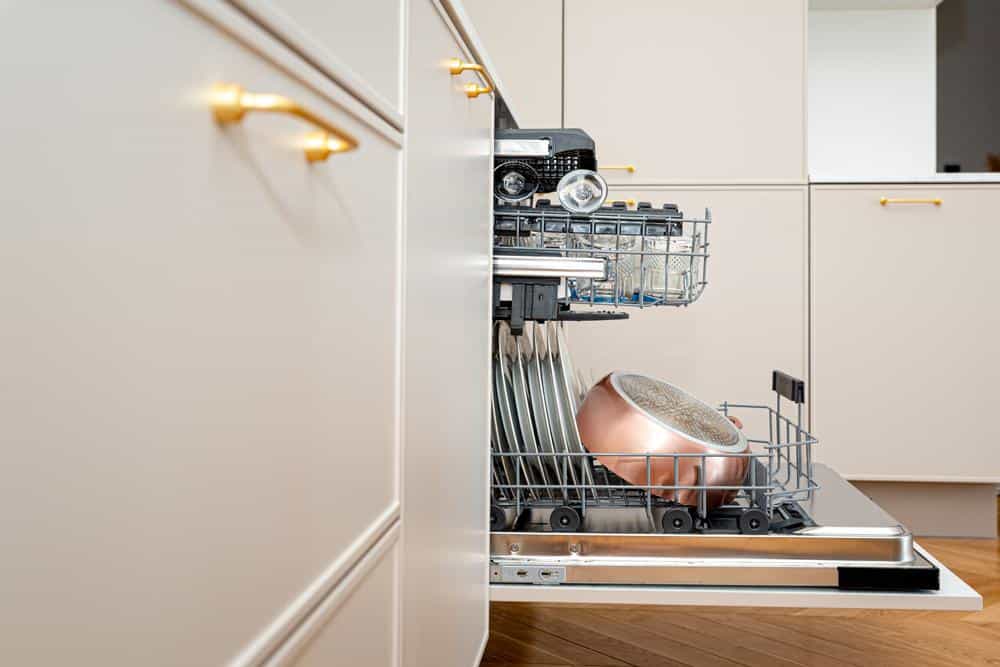
When it comes to maintaining the optimal performance of your Bosch dishwasher, descaling is a crucial part of routine maintenance that cannot be overlooked. This detailed guide will walk you through the process of descaling your Bosch dishwasher, providing multiple solutions and essential tips to ensure your appliance remains in top-notch condition.
To descale a Bosch dishwasher, start by emptying it and running the longest, hottest wash cycle. After 30 minutes, pause the cycle and add a Bosch Dishwasher Descaler into the bottom of the dishwasher. Resume the wash cycle and let the descaler dissolve and remove limescale buildup. Once the descaling cycle has finished, run another wash cycle to rinse away any remaining residue. Regularly descaling your Bosch dishwasher will maintain its efficiency and longevity.
What is Descaling and Why is it Necessary?
Descaling is the process of removing limescale from metal surfaces that come into contact with hot water, such as in boilers, water heaters, and dishwashers. Limescale is a hard, white or brown deposit that forms due to the presence of calcium carbonate and magnesium carbonate compounds in water. Descaling agents, which are typically acidic compounds, react with these compounds to produce carbon dioxide gas and a soluble salt, effectively removing the limescale.
Regular descaling is necessary for a Bosch dishwasher to maintain its efficiency and effectiveness. Limescale can build up quickly, especially in hard water areas, which can hinder the dishwasher’s performance. Bosch recommends descaling your dishwasher at least once a year using their tested and approved dishwasher descaler.
Visible Signs Your Dishwasher Needs Descaling
There are a few telltale signs that your Bosch dishwasher needs descaling:
- Spots on glasses and silverware: If you notice spots on your glasses or silverware after a wash cycle, it could be a sign that your dishwasher needs descaling, especially if you have hard water.
- Poor cleaning performance: If your dishes are not coming out as clean as they used to, it might be due to limescale buildup affecting the dishwasher’s performance.
- Dirty dishwasher interior: If the inside of your dishwasher door or other interior parts appear dirty or have a chalky residue, it could be a sign of limescale buildup.
How Often Should a Bosch Dishwasher Be Descaled?
Ideally, a Bosch dishwasher should be descaled a few times a year to remove hard water deposits and limescale buildup. This ensures optimal performance and longevity of your appliance.
Tools and Products Needed for Descaling
To effectively descale a Bosch dishwasher, you will need a Bosch Dishwasher Descaler. This product is specifically designed to remove limescale and hard water deposits from Bosch dishwashers and is available in single packs and packs of four.
Step-by-Step Guide to Descaling a Bosch Dishwasher
- Empty the dishwasher: Make sure there are no dishes, utensils, or any other items inside the dishwasher before starting the descaling process.
- Start the longest, hottest wash cycle: On your Bosch dishwasher, select the longest and hottest wash cycle available. Do not add any detergent at this stage.
- Pause the cycle after 30 minutes: Let the dishwasher run for 30 minutes to heat up the water and start breaking down any limescale deposits.
- Add the Bosch Dishwasher Descaler: Open the dishwasher door and carefully pour the contents of one box of Bosch Dishwasher Descaler into the bottom of the dishwasher.
- Resume the wash cycle: Close the dishwasher door and let the wash cycle continue. The descaler will work to dissolve and remove limescale buildup during the remainder of the cycle.
- Run another wash cycle: Once the initial descaling cycle has finished, run another wash cycle to rinse away any remaining descaler residue.
By following these steps, you can effectively descale your Bosch dishwasher and maintain its performance.
Risks of Not Regularly Descaling Your Dishwasher
If a Bosch dishwasher is not regularly descaled, several risks may arise:
- Clogging and reduced cleaning efficiency: Water hardness varies according to the area and can lead to scaling, which can clog your dishwasher over the long term. This can disrupt the appliance’s water flow and reduce its cleaning efficiency.
- Limescale buildup: Hard water can lead to limescale buildup on utensils and the inner walls and door of your dishwasher. This can potentially damage the appliance and affect its performance.
- Increased energy consumption: Limescale buildup can cause the dishwasher to use more energy, as it takes longer for the water to heat up, increasing power consumption.
- Reduced lifespan: Regular descaling helps prolong the life of your dishwasher by preventing clogging and protecting the appliance against limescale deposits.
Conclusion
Regular descaling is an essential part of maintaining the efficiency and longevity of your Bosch dishwasher. By following the steps and tips outlined in this guide, you can effectively descale your dishwasher and ensure it remains in optimal condition for years to come.
Frequently Asked Questions
Can I use a different descaler product other than the Bosch Dishwasher Descaler?
It is always recommended to use the Bosch Dishwasher Descaler as it is specifically designed for Bosch dishwashers. However, if unavailable, you may use a high-quality universal dishwasher descaler. Make sure to follow the instructions on the packaging.
Can I descale my Bosch dishwasher more frequently than a few times a year?
Yes, you can descale your Bosch dishwasher more frequently, especially if you live in a hard water area. Increasing the frequency of descaling can help prevent rapid limescale buildup and maintain the dishwasher’s efficiency.
What should I do if my dishwasher is still not performing well after descaling?
If your dishwasher’s performance doesn’t improve after descaling, it is recommended to contact a Bosch service representative. There might be other issues affecting the dishwasher’s performance that need professional attention.
Is it safe to use my dishwasher immediately after descaling?
Yes, it is safe to use your dishwasher immediately after descaling. However, it is recommended to run an additional hot water cycle without dishes after descaling to ensure all residues are thoroughly rinsed out.
Can I use vinegar or baking soda as a natural descaler?
While vinegar and baking soda are often used as natural descaling agents, it is not recommended to use them in your Bosch dishwasher. These substances may not effectively remove limescale and could damage your dishwasher’s components. Always use a product specifically designed for dishwasher descaling.


